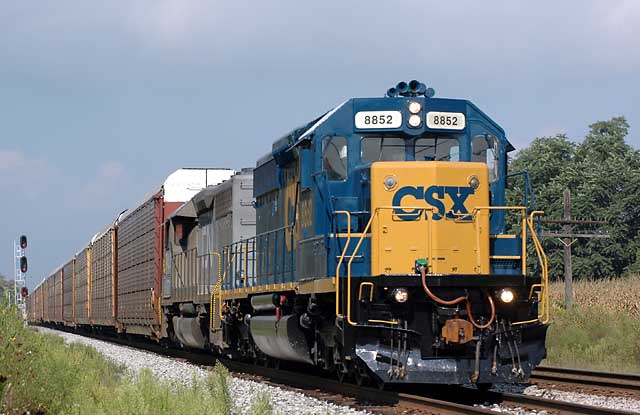WASHINGTON – In the case of CSX TRANSPORTATION, INC. v. MCBRIDE, 10-235, a ruling was handed down today by the U.S. Supreme Court against CSX Railroad in their bid to make it harder for railroad workers to win lawsuits that would hold the company responsible for injuries they suffered on the job.

The court, in a 5-to-4 opinion by Justice Ruth Bader Ginsburg, upheld a $184,000 court award to CSX railroad engineer Robert McBride, who said he injured his hand while adding and removing railroad cars.
The case centered on the test for determining whether a railroad’s negligence was the cause of an employee’s injury. The federal judge overseeing the CSX trial in Benton, Illinois, told the jury that the railroad was responsible if its negligence “played a part, no matter how small, in bringing about the injury.”
CSX contended workers should have to meet the more demanding standard, known as proximate cause, that applies in other types of personal-injury suits.
CSX said McBride should have been required to prove that the company’s alleged negligence was a cause of the injury
Justice Ginsburg rejected CSX’s arguments that the jury instructions in the case made it too easy for jurors to find that CSX caused or contributed to the engineer’s injury.
The justices were examining a provision of the Federal Employers’ Liability Act (FELA) that says a rail carrier is liable for worker injuries that result from negligence by the carrier.
“Every Court of Appeals that reviews judgments in FELA cases has approved jury instructions on causation identical or substantively equivalent to the Seventh Circuit’s instruction,” Justice Ruth Bader Ginsburg wrote for the majority. “Each appellate court has rejected common-law formulations of proximate cause of the kind CSX requested in this case.”
The high court defined FELA liability in the 1957 case Rogers v. Missouri Pacific R. Co. as a finding that “employer negligence played any part, even the slightest, in producing the injury or death for which damages are sought.”
On Thursday they rejected that such “instruction opens the door to unlimited liability, CSX worries, inviting juries to impose liability on the basis of ‘but for’ causation.”
Chief Justice John Roberts dissented, joined by Justices Antonin Scalia, Anthony Kennedy and Samuel Alito.
McBride’s injury occurred at the end of a day he spent training to deliver rail cars from one location to another near Evansville, Indiana. He says the process was made more difficult because he had to use wide-body locomotives, which had a different type of brake than smaller engines.
At trial, McBride testified that, near the end of the day, he put his hand on the brake and felt intense pain. He says he later underwent two surgeries and physical therapy.
References:
1. SUPREME COURT OF THE UNITED STATES
CSX TRANSPORTATION, INC. v. MCBRIDE
CERTIORARI TO THE UNITED STATES COURT OF APPEALS FOR THE SEVENTH CIRCUIT
No. 10–235. Argued March 28, 2011—Decided June 23, 2011
2. Courthouse News Service
3. Bloomberg News
Published by FELA lawyer news blog at Gordon & Elias, LLP